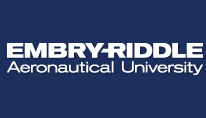T3-D: Inclusion of Field Trips in Teaching of Environmental Engineering for Civil Engineering Program: A Case Study
Location
Richard Petty
Start Date
5-3-2018 3:45 PM
Description
The course, `Introduction to Environmental Engineering', was developed and taught incorporating the field trip in the course curriculum. In this course, two field trips were arranged: one in a local water treatment plant after finishing the topic water treatment and drinking water standards and the other in a local wastewater treatment plant after finishing the topic wastewater treatment and disposal. The data was collected based on the options: no incentive, incentive for overall grade, and/or bonus points for overall grade that was assigned in the field trips for three different semesters. At the end of the semester, an anonymous on-line survey was conducted with five questions to understand the perceptions and attitudes of students that had participated in the field trips. To assess the students’ understanding about the water and wastewater treatment processes, one question was set in the midterm exam to draw a flowchart for a typical water treatment plant and another question was set in the final exam to draw a flowchart for a typical wastewater treatment plant. Based on the collected data, students’ perceptions and attitudes about field trip appeared to be favorable and acceptable as a learning environment of water and wastewater treatment processes. Based on the assessment of flowchart questions, field trips had some effect as a learning tool in terms of knowledge retention about water and wastewater treatment processes.
T3-D: Inclusion of Field Trips in Teaching of Environmental Engineering for Civil Engineering Program: A Case Study
Richard Petty
The course, `Introduction to Environmental Engineering', was developed and taught incorporating the field trip in the course curriculum. In this course, two field trips were arranged: one in a local water treatment plant after finishing the topic water treatment and drinking water standards and the other in a local wastewater treatment plant after finishing the topic wastewater treatment and disposal. The data was collected based on the options: no incentive, incentive for overall grade, and/or bonus points for overall grade that was assigned in the field trips for three different semesters. At the end of the semester, an anonymous on-line survey was conducted with five questions to understand the perceptions and attitudes of students that had participated in the field trips. To assess the students’ understanding about the water and wastewater treatment processes, one question was set in the midterm exam to draw a flowchart for a typical water treatment plant and another question was set in the final exam to draw a flowchart for a typical wastewater treatment plant. Based on the collected data, students’ perceptions and attitudes about field trip appeared to be favorable and acceptable as a learning environment of water and wastewater treatment processes. Based on the assessment of flowchart questions, field trips had some effect as a learning tool in terms of knowledge retention about water and wastewater treatment processes.


